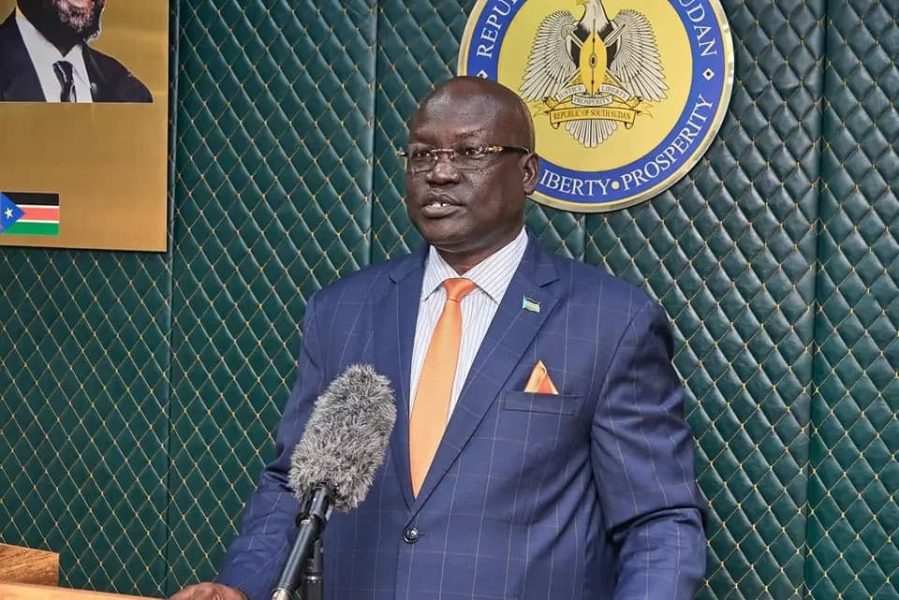
The government has announced a plan to launch emergency food assistance for internally displaced people (IDPs) affected by the conflict in Ulang and Nasir counties of Upper Nile state.
The decision to deliver food to people affected by the conflict came after a meeting between Vice President Dr. Benjamin Bol and Humanitarian Affairs Minister Albino Akol, where they discussed the country’s humanitarian situation.
Speaking to the media after the meeting on Tuesday, Minister Atak stated that the government will deliver food assistance directly to accessible areas and airdrop it to inaccessible locations.
Although he did not specify the exact date of disbursement or the source of the food assistance, Mr. Atak stated that the intervention was a response from President Salva Kiir, communicated through the Vice President and chair of the Economic Cluster, Dr. Benjamin Bol Mel, to provide emergency food assistance to people affected by the conflict.
“We are now going to start immediately airdropping food assistance to those areas. In those areas we cannot reach, we will drop food. In those we can access, we will deliver directly to the vulnerable on the ground,” Atak explained.
South Sudan is facing a humanitarian crisis driven by conflict, climate shocks, disease outbreaks, and reductions in international aid.
The aid cuts have left South Sudan on the brink of humanitarian challenges, leading to children dying from cholera and other diseases, worsening the situation for South Sudanese internally displaced persons.
Now, this government announcement followed a recent assurance made this month by the Minister of Humanitarian Affairs and Disaster Management, Albino Akol Atak, that the government would shoulder the responsibility for vulnerable people affected by the international aid funding cuts.
He stated that the government will coordinate with other partners to mitigate the effects of aid cuts.
“We have already started informing communities about the aid cuts so they can understand why services may no longer be readily available,” Atak said.
“People who rely on food, health care, nutrition, and education must know there will be changes. Instead of covering everything, we will focus on life-saving services in the areas that are most critically affected,” he stated.

